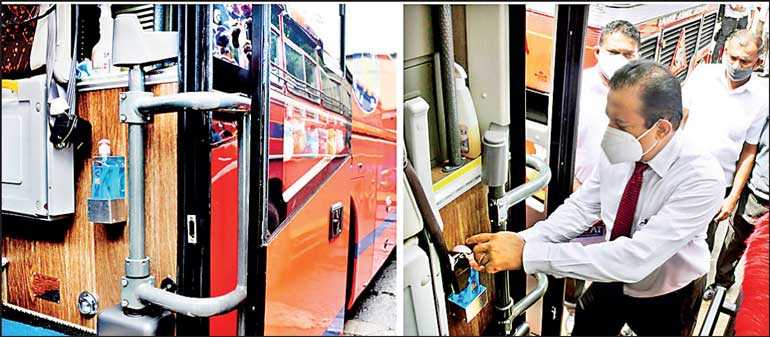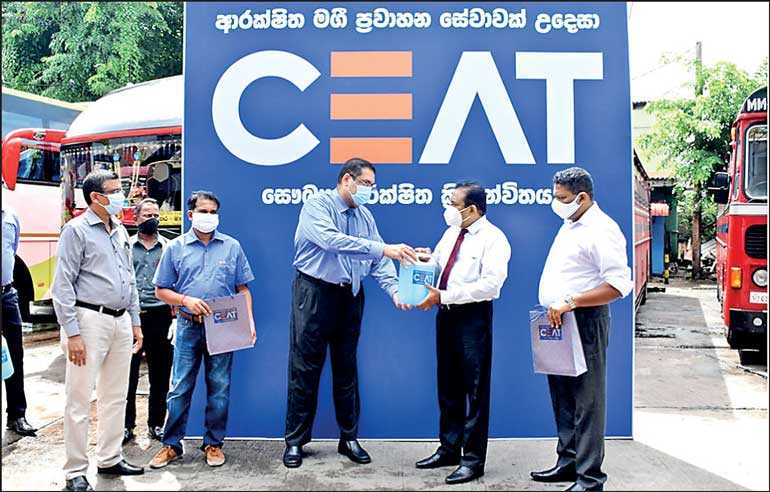Wednesday Feb 18, 2026
Wednesday Feb 18, 2026
Friday, 19 June 2020 00:00 - - {{hitsCtrl.values.hits}}


As Sri Lanka’s citizens begin to grapple with the “new normal” of resuming their regular work and other routines, the country’s leading tyre maker CEAT Kelani Holdings has swung into action to help protect the masses from a possible resurgence of the COVID-19 pandemic.
In a multi-pronged effort, the company, which is the biggest supplier of tyres to the public transport sector, is working with the Sri Lanka Transport Board (SLTB) to improve safety and hygiene facilities for commuters as well as bus crews, is supporting lorry crews with personal safety kits and sanitisation of lorries serving key market locations and is helping sustain workers at tyre dealerships around the country.
“The phased return to normal life while imperative, throws up a plethora of challenges that the government cannot handle on its own,” said CEAT Kelani Holdings Managing Director Ravi Dadlani. “Preventing a second and third wave of infection and beating this pandemic requires immense resources and commitment at all levels, and at CEAT we are looking at some of the touch points of our business as a good place to start.”
One CEAT project in the public transport sphere is the fitting of hand sanitiser units on 350 buses operating in the Colombo District for the use of passengers as they board. CEAT has undertaken to supply sanitiser liquid for these buses for three months from 1 June 2020 onward. The company is also supplying three months’ supply of personal safety kits for bus drivers and conductors. Each kit comprises of six face masks, six pairs of gloves and personal hand sanitiser units. Supporting operators of fleets of lorries that transport produce to markets, CEAT has undertaken to supply personal safety kits to the drivers and helpers of 500 lorries for three months. Additionally, the Company has volunteered to fund an outsourced sanitation operation for three months to sanitise lorries serving the Manning Market, Peliyagoda Fish Market, and the Economic Centres at Dambulla and Narahenpita. In consideration of the difficulties they must have undergone during the period of the lockdown of businesses, CEAT has also come forward to provide dry rations for the next three months to 500 tyre fitters employed by the Company’s top 100 tyre dealers in Sri Lanka. “Besides the cost, these projects involve a great deal of time-consuming coordination, monitoring and logistics support, but the CEAT team is up to the task,” Dadlani added. “With three out of every five trucks and buses on Sri Lanka’s roads running on CEAT tyres, we are an indispensable element in the transport of people and goods in Sri Lanka, and feel duty bound to help keep the users of these modes of conveyance as safe as possible.”
CEAT Kelani Holdings, which manufactures nearly half of Sri Lanka’s pneumatic tyre requirements, is considered one of the most successful India – Sri Lanka joint ventures in the manufacturing sector. The joint venture’s cumulative investment in Sri Lanka to date totals Rs. 8 billion, inclusive of Rs 3. billion committed in January 2018 for expansion of volumes, technology upgrades and new product development.